The concept of birthstones is familiar to many, including those who do not necessarily consider themselves particularly knowledgeable in the realm of gemstones. However, even those who know each month’s birthstones backwards and forwards may not be fully aware of the meaning behind birthstones, where they come from, how they were selected for each month, and which birthstones are the rarest.
Check out our collection of gemstones.
Here is a compilation of the various birthstones that will direct you to your assigned stone and help you learn a bit about it.
The Meaning Behind Birthstones
It is widely believed that each month, or every specific time of each year, has an effect on the people born during that period. Additionally, many cultures have felt that certain gemstones held various powers, and were therefore used for healing purposes, protection, and for renewing energy. That is why the meaning of each and every birthstone can be particularly significant. From January’s garnet, which symbolizes friendship and trust to April’s diamonds, which are associated with love, to September’s sapphires, which are all about trust and loyalty, each birthstone has its own significance as well as energy.
Leibish Emerald Rings
Birthstone Calendar
| January | February | March | April |
|---|---|---|---|
| Garnet | Amethyst | Aquamarine | Diamond |
| May | June | July | August |
| Emerald | Pearl | Ruby | Peridot |
| September | October | November | December |
| Sapphire | Opal | Topaz | Turquoise |
Where Birthstones Come From
The idea behind birthstones can be traced all the way back to biblical times when the High Priest wore a breastplate displaying twelve gemstones across four rows. Each stone represented one of the twelve tribes. Later on, twelve gemstones were associated with the twelve apostles.
It was since then that gemstones were connected to zodiac signs and birth months, but it was much later on, however, in 15th or 16th century Poland, when birthstones were first worn. Finally, in 1912, the Jewelers of America put together an official list of birthstones, mainly selecting stones that were commercially available as opposed to most suitable from a sign perspective. Each of these stones, which include garnet, amethyst, aquamarine, diamond, emerald, alexandrite, ruby, peridot, sapphire, opal, topaz, and zircon, are mined in different parts of the world in varying quantities. Garnets are discovered all across the globe, but especially in Africa, Asia, South America, and in the United States. Most amethysts are mined in Zambia but are also found in several locations in South America including Bolivia, Brazil, Uruguay, and Argentina as well as in Asia, the United States, and Canada. The majority of aquamarine stones come from Brazil, while the biggest producer for diamonds is Russia but is closely followed by Africa, India, and Australia. Colombia, Brazil, and Zambia are the main contributors for emeralds, whereas alexandrite has been found in Russia, Sri Lanka, and Brazil. Rubies are mined all across the planet, as are peridots. Sapphires on the other hand are only mined in a few locations worldwide. These include Kashmir, Burma, and Sri Lanka. Australia puts itself on the map for being the main source for opals while topaz is mined in many countries spanning six continents. Zircon comes from Sri Lanka, Burma (Myanmar) and can sometimes be found in Canada.
How Gemstones are Selected as Birthstones
The modern birthstone list, as we know it, was influenced by a couple of factors. Zodiac signs impacted the development of the concept of birthstones and the practical realities related to the trade of gemstones are basically what finalized the designated birthstones. Therefore, birthstones were somewhat arbitrarily chosen for each month based on the overall availability, accessibility, and cost of the stones at the start of the 20th century. However, the initial representation of the stones based on the zodiac stones had a strong impact as well, and can be seen in months like January, which has the element of air, symbolized by the garnet. Similarly, February with its water element has the suitable amethyst as its birthstone. Of course the zodiac signs overlap months whereas birth months do not. That is why this aspect of the inspiration for birthstone selection is only just partial.
The Rarest Birthstones
While some birthstones are easier to come by than others, all gemstones, especially precious gemstones, are considered quite rare. However, the price tags can be misleading in terms of rarity as some really expensive stones are not so rare and vice versa. For example, April’s diamond, though pricey, is less rare than rubies, emeralds, and alexandrite. While on the topic of alexandrite, this is currently the rarest gemstone on the birthstone list and can come at quite a cost. Black opals are also incredibly rare.
Birthstones offer an interesting way of choosing jewelry. They allow individuals to explore gemstones they may otherwise steer clear of. At the same time, birthstones are not necessarily what people think they are, so when choosing birthstone jewelry, ensure you are purchasing it for the correct reasons.
Birthstones By Color
Every month of the year has a birthstone. But what are those stones and in which colors do they appear? From Garnet, January’s birthstone to Zircon, December’s birthstone, let us take a look at the year’s stunning stones and their beautiful hues.
Mood Design Gemstones and Diamond Halo Drop Earrings (8.27Ct TW)
In order to make sense of birthstones, color-wise, we will divide them by color. We will focus on the primary color of the months’ main birthstones.
Red/Pink
Luckily, the first month of the year, January, has a birthstone that fits into this category so we can start with some sort of order. The garnet is a dark red gemstone that is often mistaken for a ruby. Though they are both pleasant to look at, are both red, and can appear similar, garnets are far less expensive than rubies but are also less durable and are overall not as red. July’s birthstone is the ruby. Rubies belong to the mineral family of corundum and rank 9 on the Mohs scale of hardness right after diamonds. They are one of the four precious gemstones along with diamonds, emeralds, and sapphires. Rubies are essentially the red variety of a sapphire. Sapphires that are not considered red enough are known as pink sapphires. Spinel is the additional birthstone for August. The main birthstone is peridot. Red spinel is the most desired color for spinel and is a cheaper alternative to rubies. It can also be pink. Tourmaline is the second birthstone for October and is found in a range of colors including a breathtaking pink.
A 2.49 carat unheated pear shaped ruby and diamond halo ring
Yellow/Orange
November’s main birthstone is topaz, which is yellow. Its other stone is citrine, which is also yellow.
An oval citrine set, including a gorgeous ring, pendant and earrings
Green
You don’t get much greener than the green of an emerald, which is May’s delightful birthstone. Emeralds are one of the four precious gemstones and rank 7 on the Mohs scale of hardness. Other green stones include peridot, which is August’s main birthstone. Peridot actually only appears in green, and it’s more of an olive green.
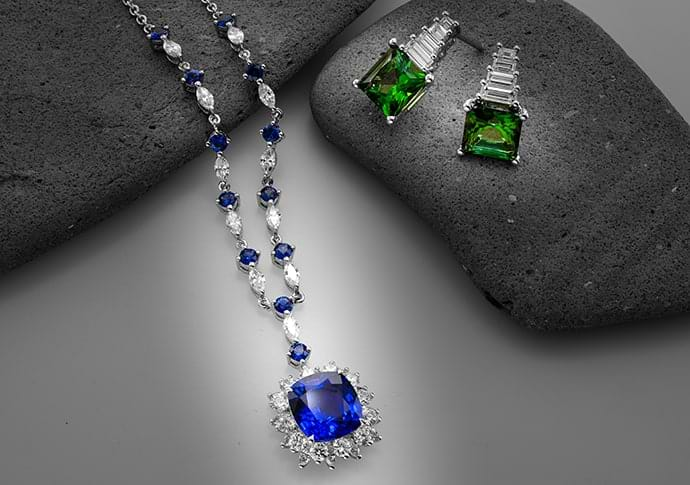
A Vivid Blue Sapphire Pendant and Green Tourmaline and Diamond Drop Earrings
Blue
Blue is the most common color for birthstones. Three main birthstones are known for their blue colors, while one additional main birthstone known for another color can also be found in blue, and additional birthstones are blue as well. Let’s begin with aquamarine, the birthstone for March. This calming stone displays a very refreshing shade of blue. It sometimes can have a combination of green and blue. September’s birthstone is the sapphire. Sapphires are mainly known for their deep blue variety but sapphires actually appear in a rainbow of colors. For our intents and purposes we will focus on the blue sapphire. Sapphires are another one of the four precious gemstones and are priced accordingly. As mentioned earlier, they are the sister stone to the ruby and also rank 9 on the Mohs scale of hardness right after the diamond. Zircon is the main birthstone for December in the United States. It is known for its colorless variety but it also appears in blue as well as other colors. Tanzanite and turquoise, also blue stones, are the secondary birthstones for this month and are the only birthstones for December in the UK. Alexandrite is one of June’s two gemstones and can be found with a blue hue but is mostly known for its color-changing abilities. The other stone for this month is the pearl.
A 1.21 carat Blue Sapphire Men's Ring
Purple
The gemstone known for its purple color is the amethyst of course. This stone belongs to February. Other gemstones that may display a purple color are fancy color diamonds, sapphires, spinel, and tourmaline. Amethysts are part of the quartz family. They rank 7 on the Mohs scale of hardness.
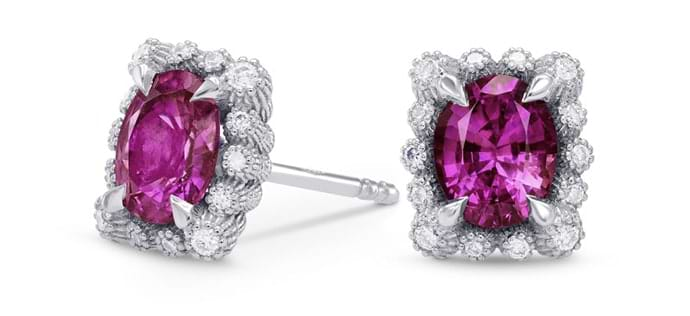
Sapphire & Diamond Halo Earrings
Colorless/White
April’s birthstone is the most popular colorless/white stone on the planet, the diamond. Many people are unaware that diamonds are actually found in other colors as well. These are known as fancy color diamonds. Diamonds rank 10 on the Mohs scale of hardness and are the hardest substance known to man. One of June’s birthstones is the pearl, which has a creamy opaque white color. Lastly, October’s famous birthstone, the opal, has a whitish appearance but often has a blue overtone and can contain a variety of colors as well. Additional birthstones have colorless varieties such as sapphires and emeralds.
Just to review, here is a list of all the birthstones and their colors:
- January: Garnet - Red
- February: Amethyst – Purple
- March: Aquamarine – Blue
- April: Diamond – Colorless
- May: Emerald – Green
- June: Pearl – Cream
- July: Ruby – Red
- August: Peridot – Green
- September: Sapphire – Blue
- October: Opal – Whitish base, exhibits different colors
- November: Topaz – Yellow, Citrine – Yellow
- December: Zircon – Colorless/Blue, Turquoise – Blue, Tanzanite – Blue (and other colors)
Take a look at our collection of gemstones or gemstone jewelry and let us know which ones you like best!
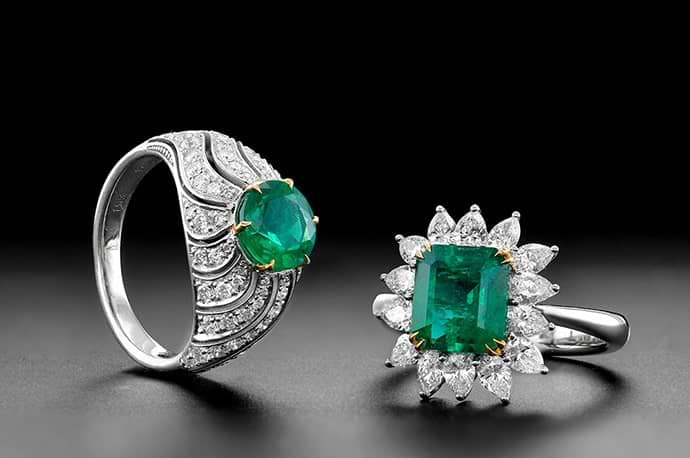
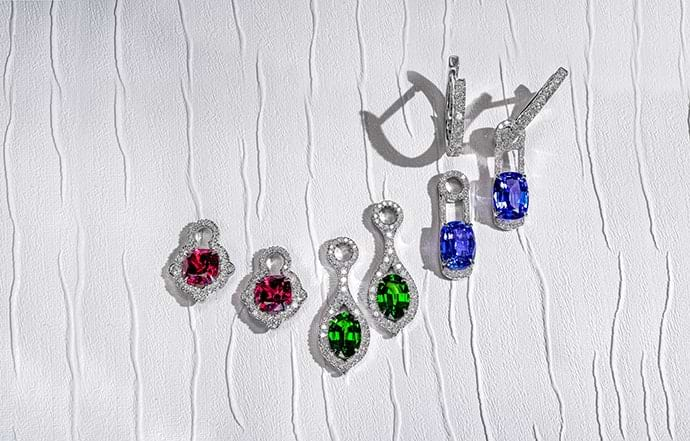
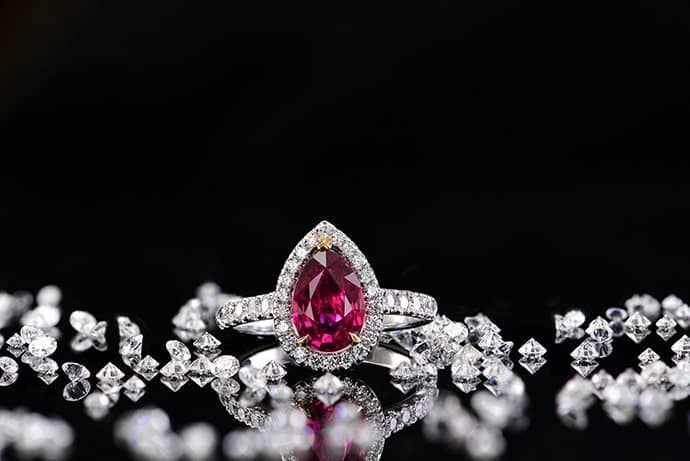
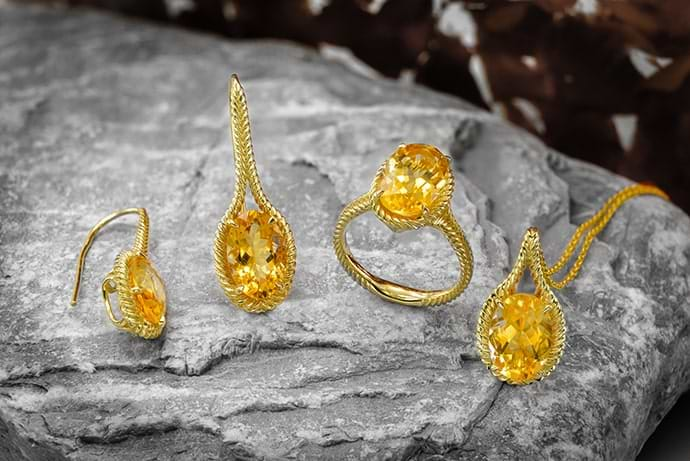
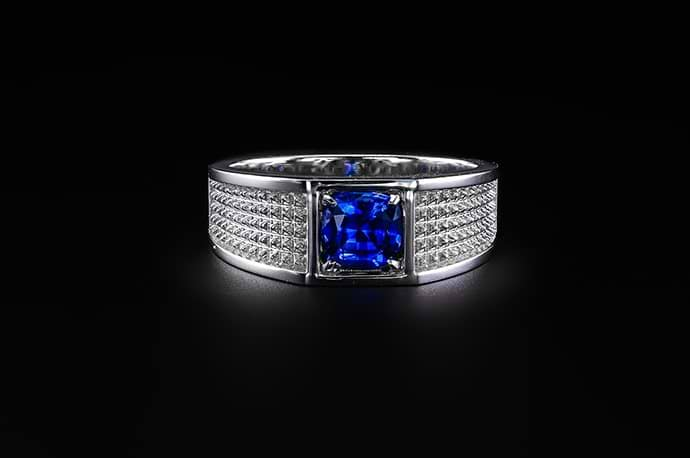
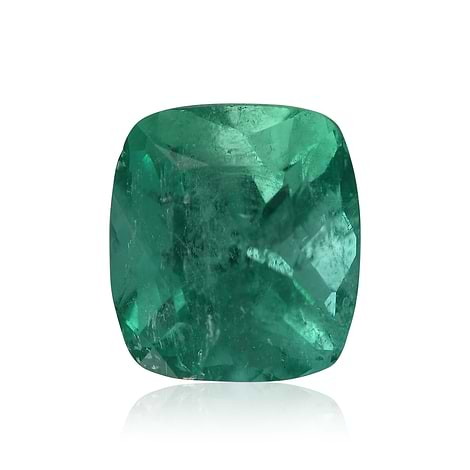
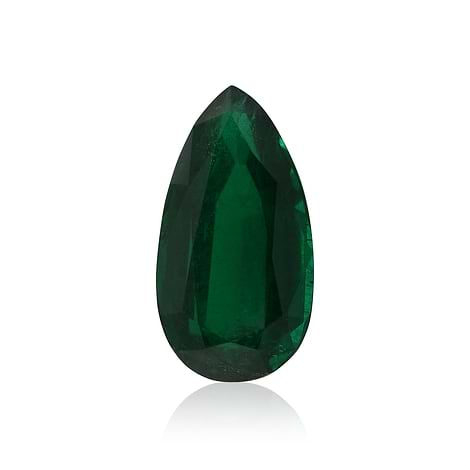
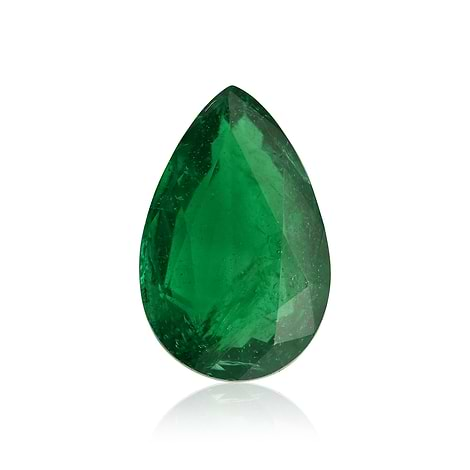
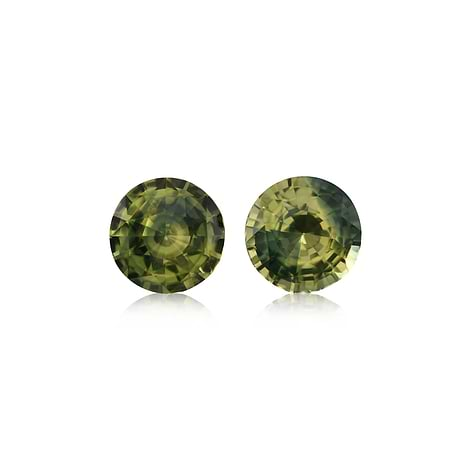
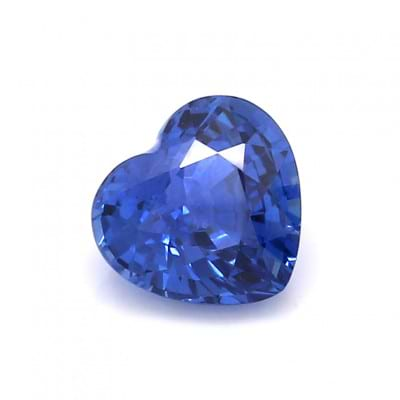

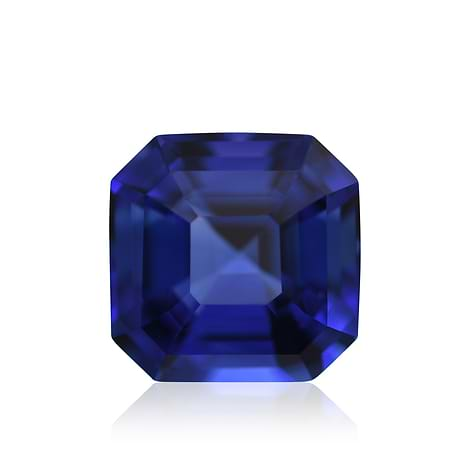
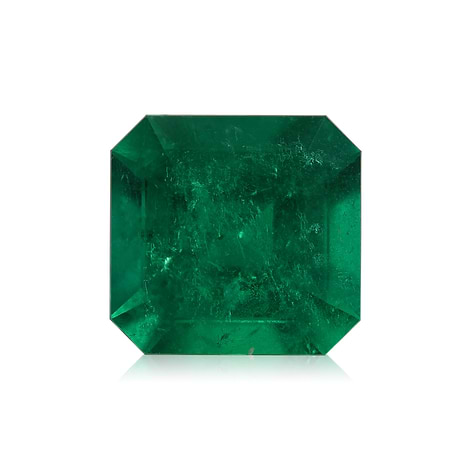
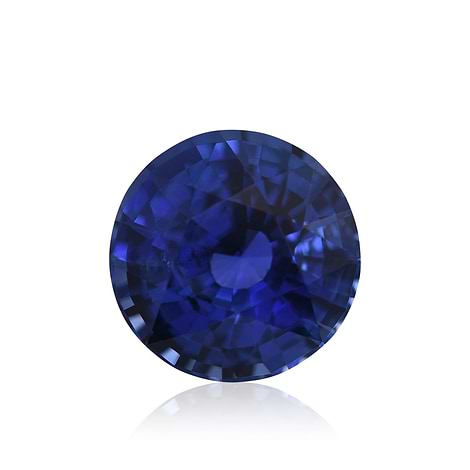
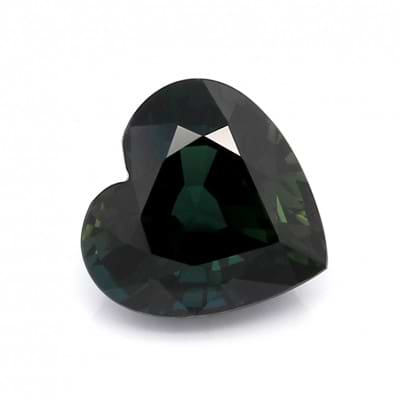

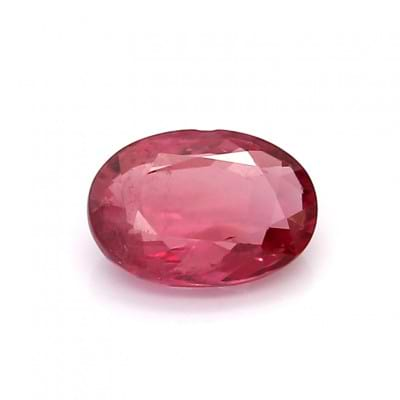

.png)
